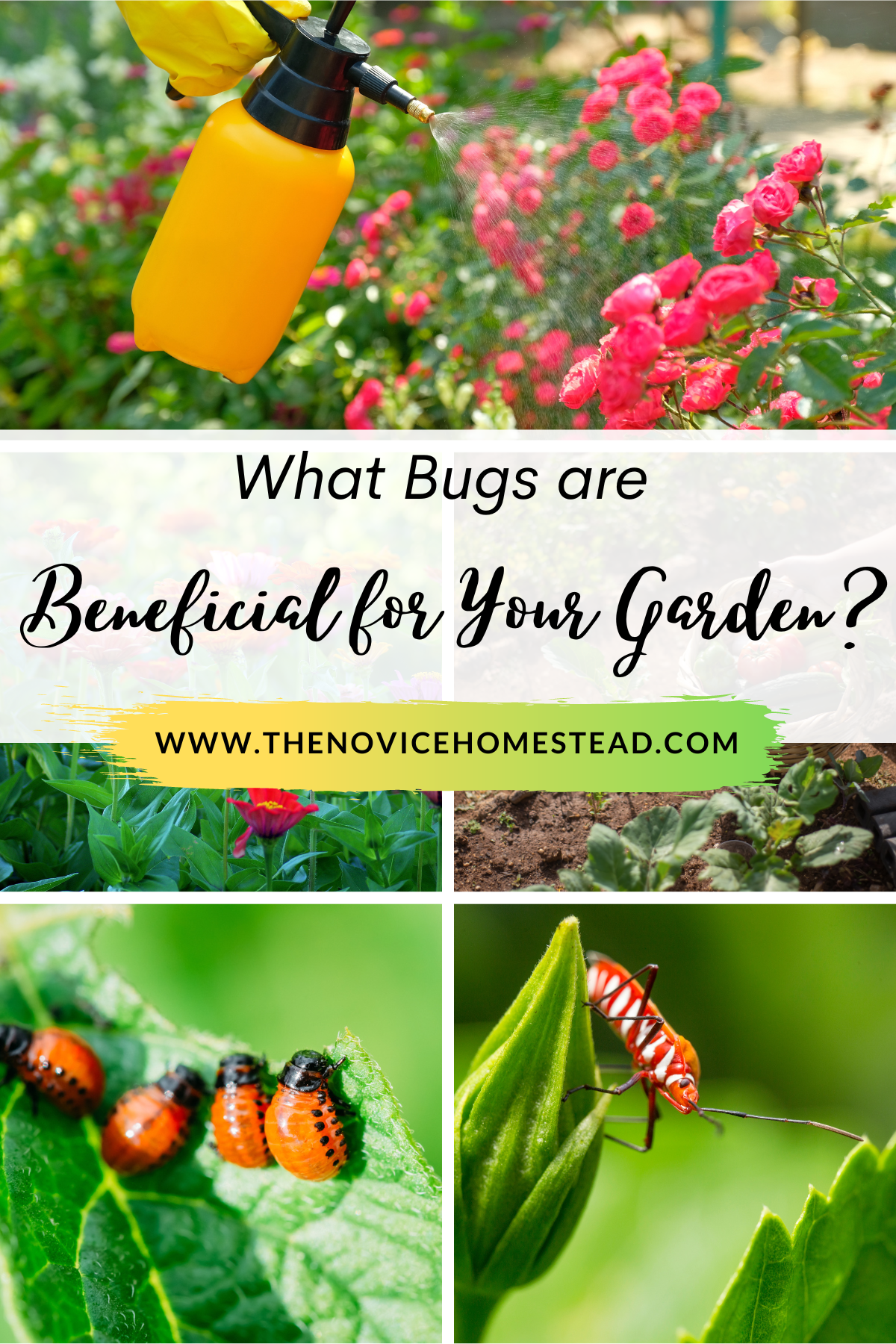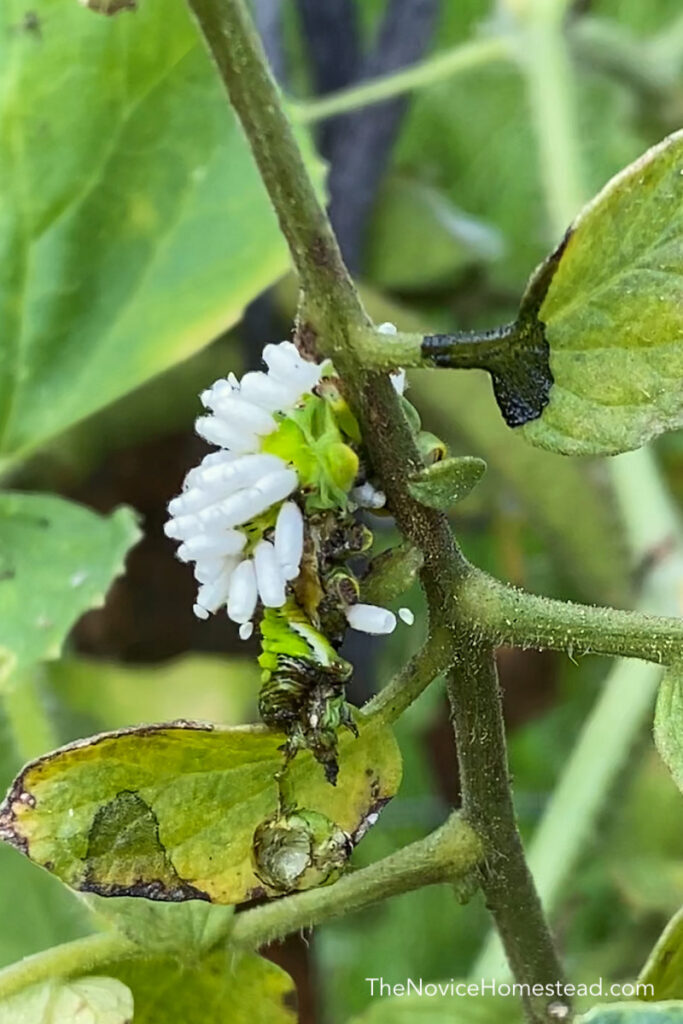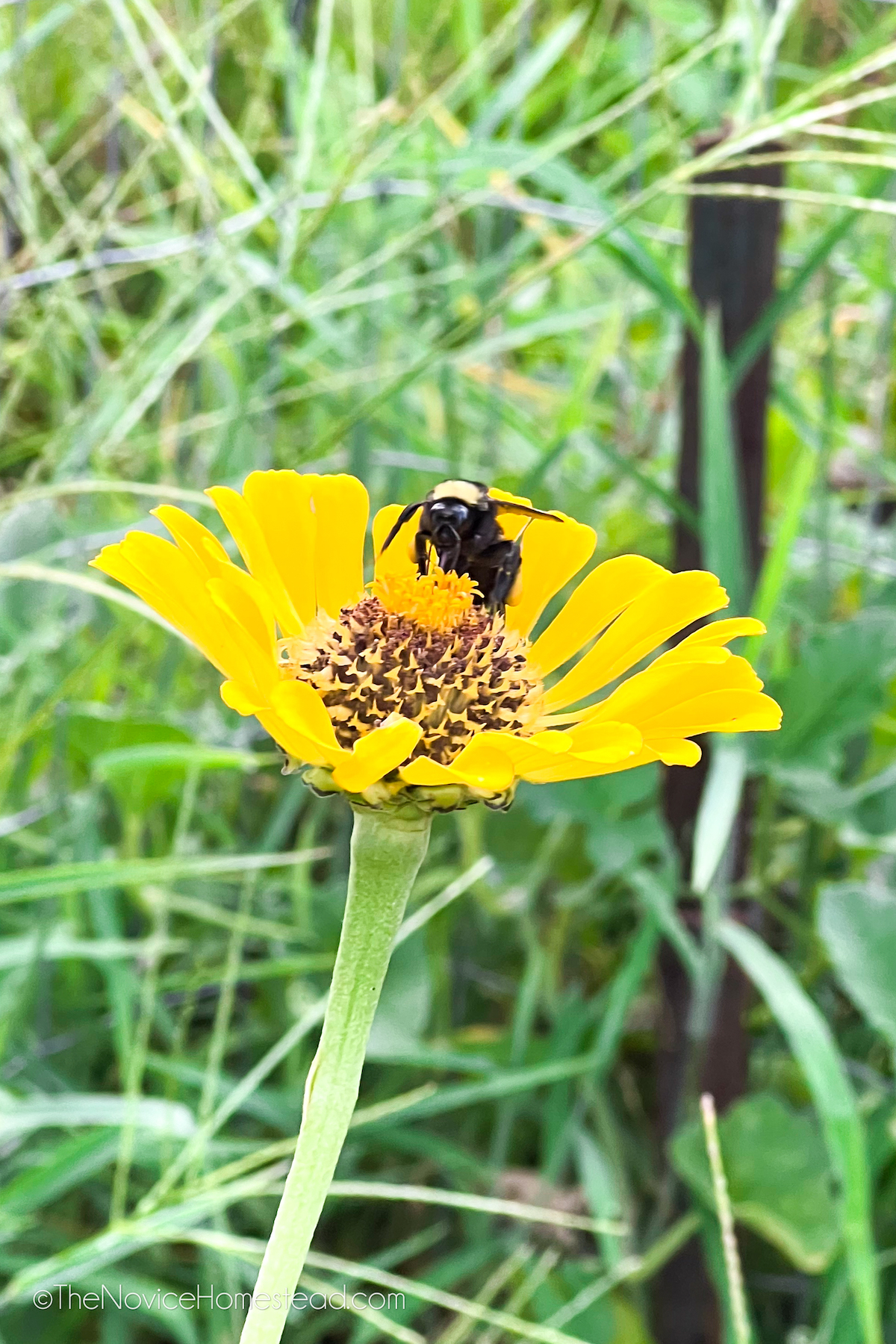Bugs are often viewed as pests, but they are vital to a healthy ecosystem! Keep reading to learn which insects are beneficial for your garden.

8 Bugs You Need To Have In Your Garden
Bugs often get a bad rap. Society is accustomed to calling bugs gross, bad, or dangerous. How many people do you know that are scared of insects? Probably a lot!
And yes, some bugs ARE bad! I mean, who wants to deal with fleas, horseflies, lice…bleh!
However, there are many bugs that are not only good to have around, they are also vital for a healthy garden ecosystem. Insects can help control other insect pests, improve soil quality, and increase crop yield through pollination.
Here are several bugs that are GOOD for your garden:
1. Ladybugs (Ladybirds)
Ladybugs are nature’s exterminators! They prey on many garden pests, such as aphids, mites, and scale insects. In fact, some gardeners purposefully release ladybugs in their garden to get rid of harmful bugs. Alternatively, you can plant things that attract ladybugs to your garden.
2. Praying Mantis
Praying mantises eat a variety of insects, including aphids, mosquitoes, and flies. They may occasionally eat beneficial insects too, but their overall contribution makes praying mantises a worthwhile garden companion!
3. Lacewings
Lacewings are another type of insect that preys on aphids, as well as other soft-bodied insects like mites and whiteflies. Lacewings do not sting, so you don’t need to worry about them being around you.
4. Parasitic Wasps
Wasps are an often under-appreciated insect. And while there are some (hornets, yellow jackets, etc.) that are not good to have around, there are many other types of wasps that are helpful for gardeners!
Parasitic wasps lay their eggs on or in other insects. The wasp larvae then hatch and feed on the host insect, eventually killing it. Parasitic wasps are a form of biological pest control that is very effective at helping get rid of pests such as caterpillars, beetles, and flies. I’ve seen them in action in my own garden and it is fascinating!

5. Beetles
There are many different types of beetles that can be beneficial to gardens. For example, ladybugs (mentioned above), feed on insect pests. Other beetles, such as ground beetles and rove beetles, can help by breaking down organic matter and aerating the soil.
Unfortunately, there are also quite a few types of beetles that are bad for your garden. Japanese beetles, cucumber beetles, leaf beetles, and flea beetles are definitely considered garden pests.
It’s important to know and be able to identify which beetles are good to have around before you begin any pest control measures.
6. Bees
Bees are one of the most effective pollinators you can have in your garden. As they feed on plant nectar, they carry pollen from plant to plant. This helps plants reproduce and increases vegetable garden yields. Bees may also help to control populations of pests such as aphids.
Learn More: How to Attract Pollinators to your Garden

7. Ants
Some ants are beneficial to your garden, while others can cause damage to your plants and be dangerous to you.
Beneficial Ants
- Garden ants: These are what you might simply know as “black ants” and they are very common. Garden ants help create healthy soil by aerating it. They also help control pests and spread pollen.
- Honeypot ants: These type ants collect nectar and store it in their abdomens. This nectar can then be used as a food source for other insects, and it can also help to attract pollinators to the garden.
- Leafcutter ants: Despite the nefarious sounding name, leafcutter ants can actually help improve soil quality. These leafcutter ants cut away pieces of plant leaves and carry them back to their nests where they cultivate a fungus that ants eat. This fungus helps to aerate the soil and improve drainage.
- Carpenter ants: These ants help to break down dead wood, which can improve the quality of the soil by mixing in organic matter.
Harmful Ants
- Argentine ants: This is an invasive species that can displace native ant populations, thus getting rid of beneficial ants. They may also damage plants by feeding on their sap.
- Fire Ants – Another invasive species, fire ants build large mounds that may disrupt plant root systems. They are also very aggressive and may attack you (or kids and pets) if you accidentally step on a nest.
- Tramp ants: Another type of ant that is known for aggressive behavior, tramp ants may invade other ant nests and kill the inhabitants. They can also harm plants by feeding on their sap.
Learn More: How to Get Rid of Bad Ants in the Garden
8. Earthworms
While not technically insects, earthworms are definitely beneficial bugs to have in your garden!
Worms will help your garden thrive by:
- Aerating the soil – As worms burrow through soil, they create tunnels that allow air and water to penetrate deeper into the soil. Turning over the soil allows gases that plants need to ge
- Breaking down organic matter – Worms eat organic matter, such as dead leaves and grass clippings. As they digest this matter, the worms release nutrients back into the soil, both improving the fertility of the soil and providing plants with the nutrients they need to grow.
- Helping control pests – Believe it or not, earthworms prey on some harmful insects, such as grubs and cutworms. Worms may also help suppress the populations of other pests, such as aphids and spider mites, by eating their eggs.
- Preventing soil from drying out – The tunnels that worms create help to retain water in the soil, keeping it moist longer.
- Loosening the soil – As worms tunnel through the soil, they help to loosen it and prevent soil compaction. When soil gets packed down, plants’ roots have to work harder to grow and have a more difficult time absorbing nutrients.
How To Attract Good Bugs To Your Garden
If you plant them, they will come!
Essentially, if you have a garden, you will attract bugs. To ensure that you’re attracting a variety of insects, and especially the beneficial insects, you want to plant a variety of things in your garden.
Here are some plants and flowers that are known to attract helpful insects:
- Marigolds
- Sunflowers
- Dill
- Lavender
- Catnip
- Cosmos
- Fennel
- Yarrow
- Clover
- Chamomile
- Chrysanthemums
- Mint
- Goldenrod
Different insects are attracted to different plants and flowers, which is why it is important to have a variety in your garden.
Finally, to help keep the good bugs alive, avoid using broad spectrum pesticides, which kill insects indiscriminately. Look for natural pest control solutions instead, or choose targeted pesticides when necessary.
Learn More: 9 Natural Ways To Keep Pests Out Of The Garden